#medication efficacy
Explore tagged Tumblr posts
Text
The Intricate Dance of Hormones and Weight Loss: Understanding the Complexities
Weight loss is often painted as a simple equation: calories in versus calories out. However, beneath the surface lies a complex interplay of hormones, each playing a crucial role in regulating our metabolism, appetite, and body composition. Understanding these hormonal influences can provide valuable insights into why weight loss can be challenging for some and offer strategies to optimize our…
#drug safety#environmental protection#medication disposal#medication efficacy#medication safety#medication storage#Public Health
0 notes
Text
Simple Ways to Help You Remember to Take Your Meds
Most patients have been prescribed medications. It is common among those who have been diagnosed with chronic conditions. Because of this, medication intake is an essential part of their daily routines. Unarguably, it is significant to maintain medication safety at all times. Dealing with medication errors and their consequences is the last thing any patient would want to encounter. Hiring medication therapy services is an ideal way to get assistance from healthcare professionals.
0 notes
Text
Trans beard/lavender marriage couple who convinces their doctors to prescribe them hormone supplements, and after both of them pick up their prescriptions, they swap medicine so they can medically transition without worry
#trans#transgender#lgbt#lgbtq#ftm#mtf#nonbinary#for legal and medical reasons i am not speaking to the efficacy or legality of switching hormones with another trans person#using 'beard' because i feel like it's similar in nature to gay man and lesbian lavender/beard coupling#this is trans solidarity
58 notes
·
View notes
Text
the thing w working out regularly again is that my cardiac health is worst it’s been in three years. and that is bc of the health flare up i had in march bc i can literally see when it divebombed in my health app & i don’t really think exercising is going to help that like. at all. bc it’s due to my dysautonomia. idk maybe assuming that’s it’s impossible to improve my cardiac health through exercising is not a good assumption to make but it is my lived experience & it’s not why i’m working out anyway
#idk i think it’s a myth that doing cardio helps your heart health as opposed to making you pass out#<- has pots*#it’s just like. frustrating making progress w my strength and then having to stop bc my heart is beating so heavy it physically hurts#if any other people w adjacent disabilities have advice i would love it btw. anyone else. not for you#i’m also only able to exercise at all bc of my heart rate medication otherwise literally two minutes of trying makes me feel like i’m gonna#- throw up/pass out. but the flare up has negated some of the medications efficacy and i don’t really know what to do abt that#ted talks
4 notes
·
View notes
Text
Back on 16 July I had an appointment with a reproductive surgeon about an endometriosis diagnosis. It wasn't exactly what I was expecting, but I wasn't really sure what to expect walking in.
We went over my menstrual history, along with what I know of family members. What my period was like before pregnancy. How things eased with pregnancy. What forms of birth control I've been on. What things have been like with my cycle on the various birth controls.
He explained what endometriosis is, and why it's believed that it happens, which is still a mystery. How the believe that the women it affects are born with what will become endometriosis later in their life.
He did a physical exam. It wasn't on a high(er) pain day for me, so it came across as a very mild case of endometriosis - if that's what it is. I don't have a lot of the symptoms that are typically present in more severe cases of endo. But that doesn't mean that I don't have endo. The appt was also on a relatively low pain day, so it's hard to tell how things would've turned out if my pain level had been different.
We're treating everything as though I have a mild case of endometriosis. We're starting with medical management instead of going straight to surgical management. I started taking norethindrone acetate, which is essentially a higher dose of progestin-only birth control.
Any real improvements can take three months to be able to acknowledge. I started the meds on 17 July - I'm looking at 9 October if I count 12 weeks, or 17 October if I count three months by start date. So we'll just have to see how things are going. It would be nice if things are improved before heading to the Renaissance Festival with my best friend later in October.
#reproductive surgeon#gynecologist#endometriosis#chronic pain#pelvic pain#hip pain#low back pain#medical management#surgical management#norethindrone acetate#three months to see efficacy#wait to see improvement#back to “normal”
2 notes
·
View notes
Note
can refusing to take your medication count as disregarding your own safety? if so, why?
Yes, it can be in certain circumstances. Medication, be that life-saving ones such as anti-seizure, heart medication, antidepressants, etc or quality of life ones like anxiety relief or prescribed supplements are all considered necessities, and denying yourself access to a necessity is considered disrespecting and/or disregarding your own safety.
However, if your reason for refusing your meds (massive trigger warning for ppl with paranoia, schizophrenia, ocd, etc!!)
has more to do with distrust of the medication, paranoia about what's in it, or feeling like it doesn't alleviate your symptoms, then it would not be considered disregarding your safety imo. I would only consider it that if you know that the medication helps you, remember it, and still don't take it/refuse it if reminded, as otherwise it would be more similar to symptoms of another disorder such as contamination OCD or delusions from one of various disorders, etc etc.
If you are refusing the medication despite being made aware that you act in ways that are dangerous for yourself without the medication (common in bipolar medications, mood stabilizers, antipsychotics, etc), that would also count as disregarding/disrespecting your own safety.
If you are refusing the medication because you don't feel you need help, are made aware that you act in ways that are harmful or hurtful to someone else in your life without the medication (also common in bipolar medications, mood stabilizers, antipsychotics, etc), that would be disregarding/disrespecting someone else's rights and/or safety depending on how exactly you react without the medication.
All of these are common presentations of ASPD symptoms in regard to medications.
#tw ocd#tw paranoia inducing#tw paranoia#tw medicine#tw medication#cw medication#cw medicine#cw ocd#tw schizophrenia#discussion of medication efficacy#aspd-culture-is#aspd culture is#aspd culture#actually antisocial#actually aspd#antisocial personality disorder#aspd#aspd awareness#aspd traits#anons welcome
7 notes
·
View notes
Text
obsessed with how people call any critique or questioning of the big pharma industries surrounding meds for mental illness and neurodivergence “ableist med shaming”. we are never escaping this prison that society has crafted around us.
#these medications are . not great in many ways and conversations need to be had 😭#as someone who’s been on 4 diff ssris and is currently on them#I hate hate hate the way psychiatrists treat them and gps give them out to even mild depression cases#overprescribed with their negative side effects undermined just to get mental health treatment responsibility off your bac#efficacy of half these meds is questionable too in terms of their harm reduction but go off I guess#don’t even get me started on ssri polypharmacy and this concept of perpetually increasing doses + therefore adverse effects until ‘it works’#putting people on insane cocktails without even being in good therapy like you can’t make this shit up#personally I can’t wait to get off my meds#the idea that once you’re on them and stable you should never stop taking them#it’s just the drug companies trying to like their pockets 😭#some people may need meds forever but for that to be your aim from the onset of taking them ? :/#most mental illnesses aren’t even chemical imbalances that’s literally a medically proven misconception
3 notes
·
View notes
Text
Dear Science Side of Tumblr,
Why are the weight loss medications that seem to be approved (and in the pipeline for approval) using injection as the delivery method? I would assume it has to do with the molecules getting to their intended destination faster/more directly, but wonder about if there are any efforts to create a medication in pill form, which is what more people are used to taking.
#science side of tumblr#help me science people#I was reading an article about medical breakthroughs from this year#and noticed that the weight loss stuff all looked to be injections#which I know is how some things are administered#but WHY#WHY is that how its done?#efficacy?#efficiency?#other word that starts with e?
2 notes
·
View notes
Text
Okay so, this is incredibly fucking sweet. I have a lot of respect for Sesame Street as a property and this is right on.
Having some of the little monster guys from my childhood say theyre here for me, even if I know it's pretend, makes my heart ache in a good way.
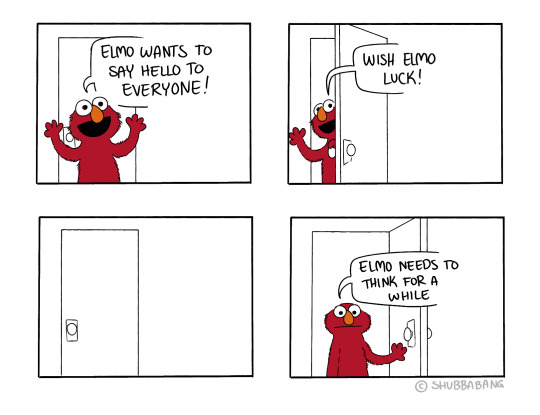
#also#elmo#im doin very bad today#more health shit#i have to take another step down a long set of stairs where getting to the bottom basically means the doctors cant do shit for me#and each step comes with medications that have more risk to my health and life expectancy#with more side effects#and questionable efficacy#and it makes me feel like im dying already#im so scared and so#so#sooooo#fucking tired of the medication grind
195K notes
·
View notes
Text
Understanding how medications interact with our unique genetic makeup is revolutionizing healthcare. Pharmacogenetics testing is at the forefront of this advancement, ensuring that treatments are tailored for maximum efficacy and safety.
0 notes
Text
Ok trying to write something when my meds are still (nominally) in effect! Standard ramble/stream of consciousness, today on privilege
Having privilege fucking sucks? No, I don't mean in the "oh woe is me i had to pay 10% more for my luxury goods!" sense. I am a white person earning a living wage in the imperial core: objectively, I wouldn't have a leg to stand on! But analysis of privilege is relative to so many conditions it renders the statement "I have some privilege" and insufficiently defined statement t ok be communicatively valuable.
Like, I have no debt. Economically speaking, that puts me in the upper quarter of Americans wealth-wise. Undeniably, that conveys privilege. But that usage is imprecise; the privilege is of the form removal-of-burdan, not a hoarded-undue-excess. My interactions with systems is, undeniably, shaped by the fact I am able to somewhat select the services I engage, and with a degree of choice and freedom. Being white, on top of economic status, means I have even greater degrees of systemic benefit. But I'm also disabled. And autistic. And queer. And trans. It's absolutely correct to call me a complaining white woman - I am, despite my desire not to complain! - but my complaint is not "I should have it easier". Empirically, there are ways in which I do and ways in which I absolutely do not.
My point, the whole reason I bring this up, the reason it bothers me. I like helping my friends and communities. It's why I offer to send masks to people, if I see a person in one of my circles who may be in a dangerous situation or could use some help i try to be able to offer it. But despite my advantageous position economically, I'm *far* from wealth. If I lose my job, I have a few month's buffer to last me until I can find a new one or need to ask for help. But that's not enough to be able to pay for what everyone around me needs. Not in the literal sense - I'm asocial enough to not know my neighbors, for example - but in my communities, in the circles and spaces through which I move. There is so much need, any individual could exhaust themselves without making a significant dent. How do you balance it out? Anyway, you will note every privilege I mention save one is conditional. I can lose my job, or physical health, or insurance, or... And those benefits and privileges are gone.
Why has this been bothering me lately? Two reasons. It should not take having my actual metabolic curve for a specific estradiol ester mapped out to get an ester that my body reacts to appropriately. Being able to tell your doctor that you need a different medication should be sufficient. More seriously, you shouldn't have to fear retaliation for raising a concern about complicity to apartheid. The only ethical reaction to privilege is trying to twist it against itself. There's no "enough" anyone can do to fight these systems - all anyone can do is whatever they can. Sorry I can't be doing more.
#Lethe's flow#My writing/rambling#Think I like that tag?#Maybe I'll actually remember to use it consistently xD#Anyway uh yeah sorry this is whiney#I hate dealing with social dynamics and this week has been nothing but -_-#Hoping the concern I filed goes somewhere?#It's not like I expect us to suddenly cancel all our contracts with cloud providers due to their enabling genocide#(we should obviously! It's ethical obligation to do what one can to avoid economic engagement with apartheid)#Hoping that getting into the cypionate (eventually...) helps things#Did some reading on hormone levels effects of ADHD medication#High prog levels are strongly correlated with reduced efficacy of stimulant and non-stimulant ADHD meds#And low estrogen does as well!#“low” is subjective - but under 300 I get hot flashes and migraines soooo#Anyway sorry for the ramble if I have offered help it's genuine#And please mask#COVID is BAD right now#This week it's estimated to be ~1.4 MILLION new infections a day in the US!
0 notes
Text
"The first modern attempt at transferring a uterus from one human to another occurred at the turn of the millennium. But surgeons had to remove the organ, which had become necrotic, 99 days later. The first successful transplant was performed in 2011 — but even then, the recipient wasn’t immediately able to get pregnant and deliver a baby. It took three more years for the first person in the world with a transplanted uterus to give birth.
More than 70 such babies have been born globally in the decade since. “It’s a complete new world,” said Giuliano Testa, chief of abdominal transplant at Baylor University Medical Center.
Almost a third of those babies — 22 and counting — have been born in Dallas at Baylor. On Thursday, Testa and his team published a major cohort study in JAMA analyzing the results from the program’s first 20 patients. All women were of reproductive age and had no uterus (most having been born without one), but had at least one functioning ovary. Most of the uteri came from living donors, but two came from deceased donors.
Fourteen women had successful transplants, all of whom were able to have at least one baby.
“That success rate is extraordinary, and I want that to get out there,” said Liza Johannesson, the medical director of uterus transplants at Baylor, who works with Testa and co-authored the study. “We want this to be an option for all women out there that need it.”
Six patients had transplant failures, all within two weeks of the procedure. Part of the problem may have been a learning curve: The study initially included only 10 patients, and five of the six with failed transplants were in that first group. These were “technical” failures, Testa said, involving aspects of the surgery such as how surgeons connected the organ’s blood vessels, what material was used for sutures, and selecting a uterus that would work well in a transplant.
The team saw only one transplant fail in the second group of 10 people, the researchers said. All 20 transplants took place between September 2016 and August 2019.
Only one other cohort study has previously been published on uterus transplants, in 2022. A Swedish team, which included Johannesson before she moved to Baylor, performed seven successful transplants out of nine attempts. Six women, including the first transplant recipient to ever deliver a baby back in 2014, gave birth.
“It’s hard to extract data from that, because they were the first ones that did it,” Johannesson said. “This is the first time we can actually see the safety and efficacy of this procedure properly.”
So far, the signs are good: High success rates for transplants and live births, safe and healthy children so far, and early signs that immunosuppressants — typically given to transplant recipients so their bodies don’t reject the new organ — may not cause long-term harm, the researchers said. (The uterine transplants are removed after recipients no longer need them to deliver children.) And the Baylor team has figured out how to identify the right uterus for transfer: It should be from a donor who has had a baby before, is premenopausal, and, of course, who matches the blood type of the recipient, Testa said...
“They’ve really embraced the idea of practicing improvement as you go along, to understand how to make this safer or more effective. And that’s reflected in the results,” said Jessica Walter, an assistant professor of reproductive endocrinology and infertility at Northwestern University Feinberg School of Medicine, who co-authored an editorial on the research in JAMA...
Walter was a skeptic herself when she first learned about uterine transplants. The procedure seemed invasive and complicated. But she did her fellowship training at Penn Medicine, home to one of just four programs in the U.S. doing uterine transplants.
“The firsts — the first time the patient received a transplant, the first time she got her period after the transplant, the positive pregnancy test,” Walter said. “Immersing myself in the science, the patients, the practitioners, and researchers — it really changed my opinion that this is science, and this is an innovation like anything else.” ...
Many transgender women are hopeful that uterine transplants might someday be available for them, but it’s likely a far-off possibility. Scientists need to rewind and do animal studies on how a uterus might fare in a different “hormonal milieu” before doing any clinical trials of the procedure with trans people, Wagner said.
Among cisgender women, more long-term research is still needed on the donors, recipients, and the children they have, experts said.
“We want other centers to start up,” Johannesson said. “Our main goal is to publish all of our data, as much as we can.”"
-via Stat, August 16, 2024
#infertility#uterus#organ transplant#reproductive health#public health#medical news#childbirth#good news#hope#pregnancy#cw pregnancy
15K notes
·
View notes
Text
Kontroverse Enthüllung über Pubertätsblocker: Cass-Report deckt ideologisch motivierte Behandlung auf
Eine bahnbrechende britische Studie hat alarmierende Ergebnisse zu Pubertätsblockern für Kinder mit Geschlechtsidentitätsfragen veröffentlicht. Über Jahre hinweg erhielten Kinder weltweit ohne ausreichende Evidenz Pubertätsblocker, die letztendlich zu einer Unterdrückung der Pubertät und Sterilisation führten. Die Untersuchung ergab, dass die vermeintliche “Best Practice” tatsächlich ideologisch…

View On WordPress
0 notes
Photo
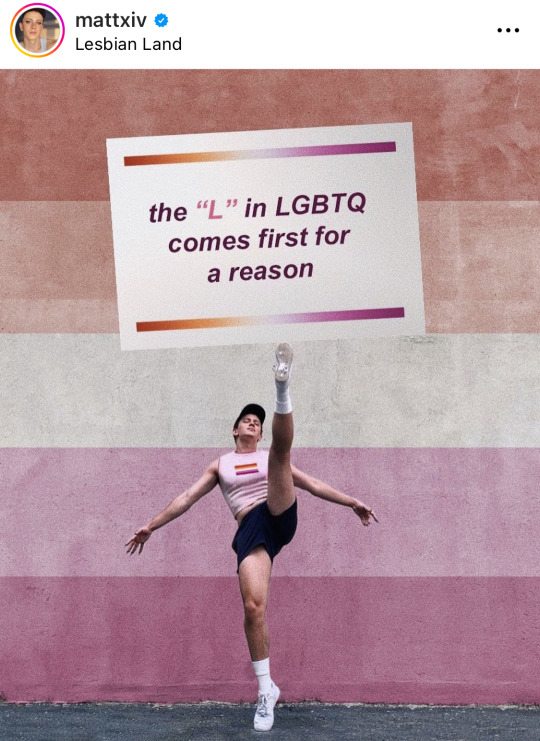
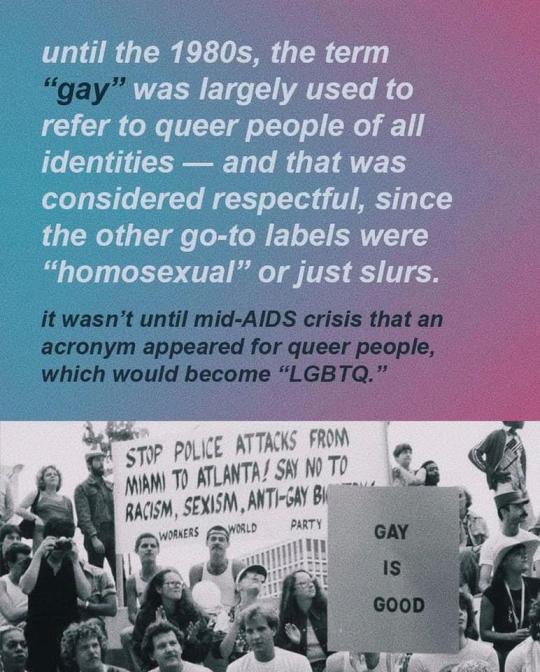
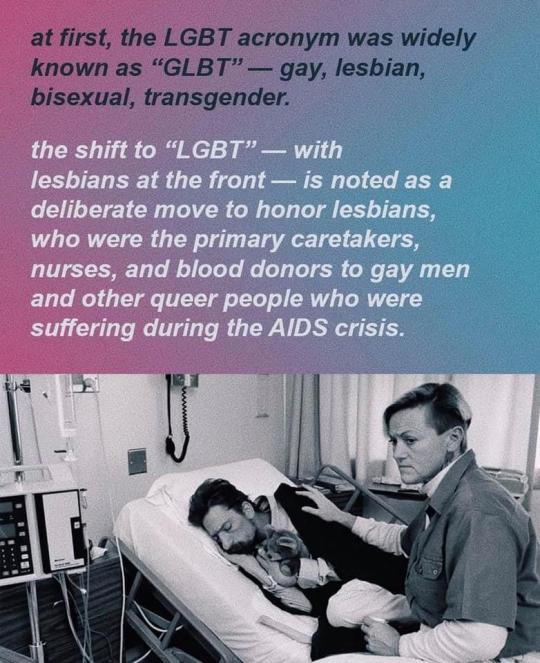
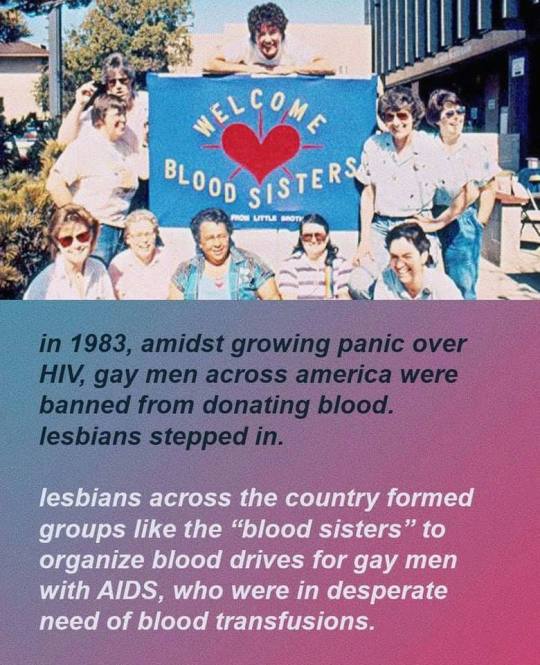
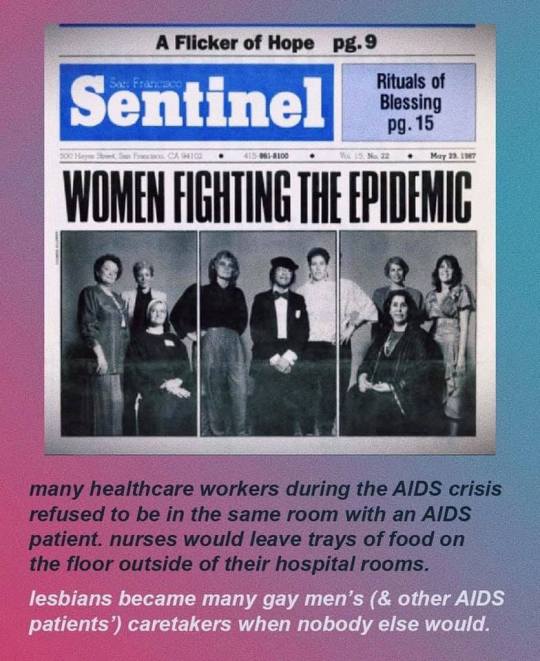
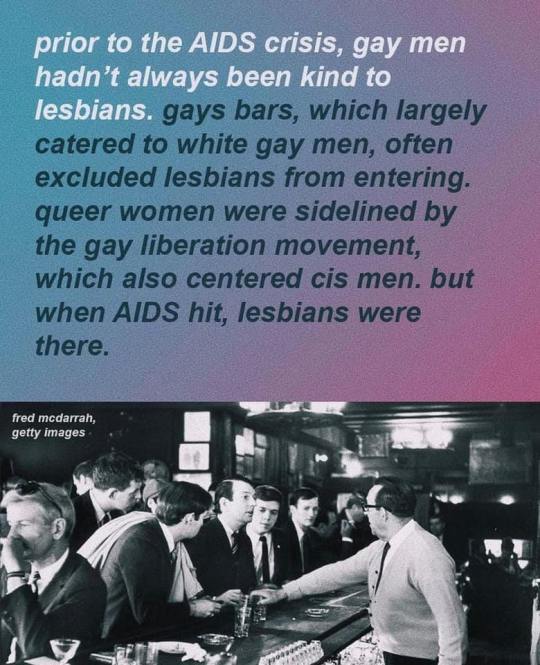
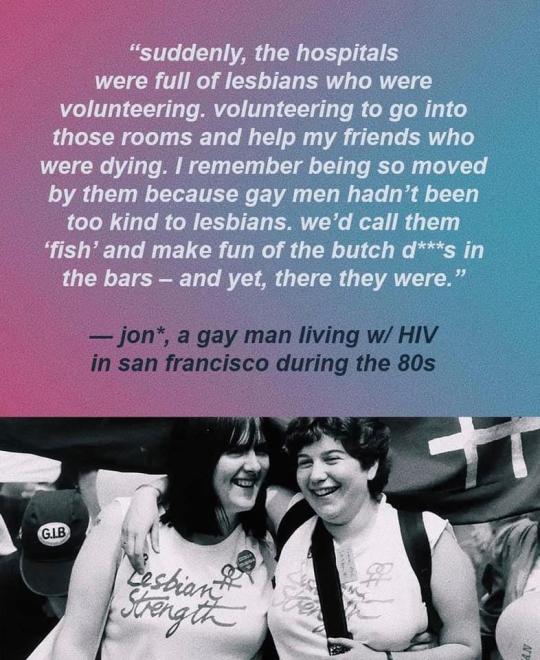
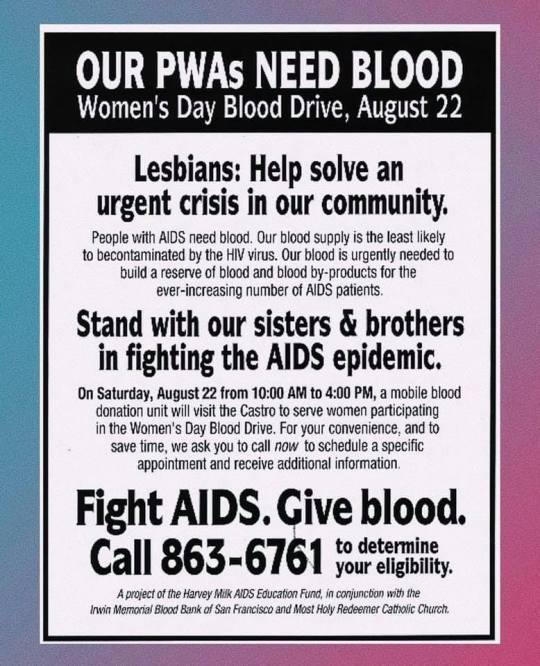
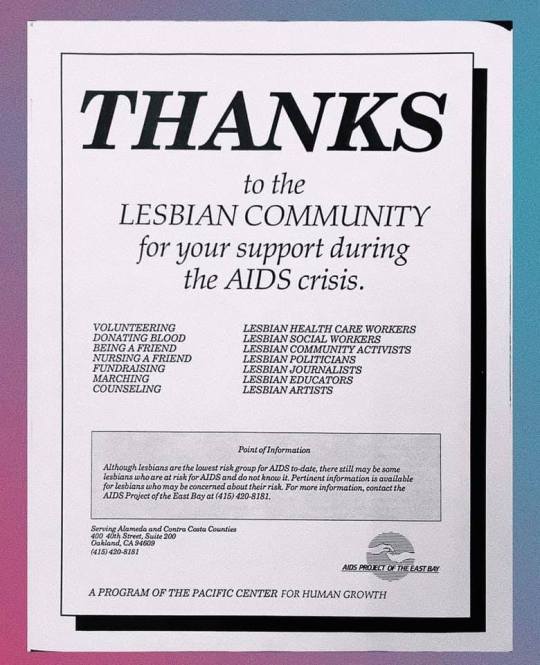
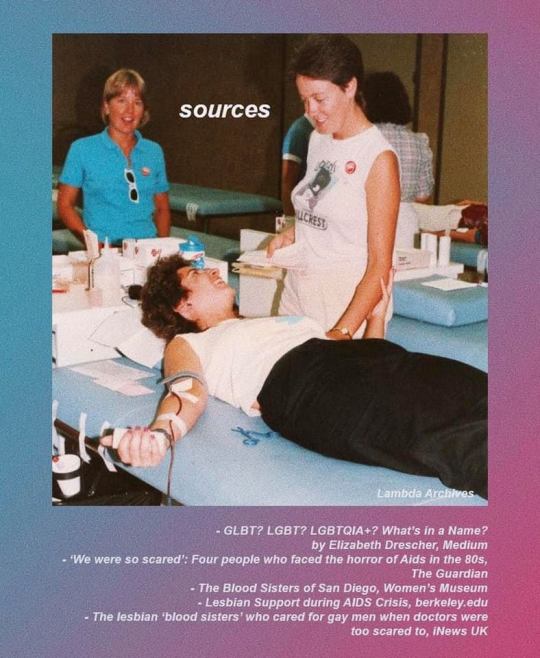
The LGBTQ community has seen controversy regarding acceptance of different groups (bisexual and transgender individuals have sometimes been marginalized by the larger community), but the term LGBT has been a positive symbol of inclusion and reflects the embrace of different identities and that we’re stronger together and need each other. While there are differences, we all face many of the same challenges from broader society.
In the 1960′s, in wider society the meaning of the word gay transitioned from ‘happy’ or ‘carefree’ to predominantly mean ‘homosexual’ as they adopted the word as was used by homosexual men, except that society also used it as an umbrella term that meant anyone who wasn’t cisgender or heterosexual. The wider queer community embraced the word ‘gay’ as a mark of pride.
The modern fight for queer rights is considered to have begun with The Stonewall Riots in 1969 and was called the Gay Liberation Movement and the Gay Rights Movement.
The acronym GLB surfaced around this time to also include Lesbian and Bisexual people who felt “gay” wasn’t inclusive of their identities.
Early in the gay rights movement, gay men were largely the ones running the show and there was a focus on men’s issues. Lesbians were unhappy that gay men dominated the leadership and ignored their needs and the feminist fight. As a result, lesbians tended to focus their attention on the Women’s Rights Movement which was happening at the same time. This dominance by gay men was seen as yet one more example of patriarchy and sexism.
In the 1970′s, sexism and homophobia existed in more virulent forms and those biases against lesbians also made it hard for them to find their voices within women’s liberation movements. Betty Friedan, the founder of the National Organization for Women (NOW), commented that lesbians were a “lavender menace” that threatened the political efficacy of the organization and of feminism and many women felt including lesbians was a detriment.
In the 80s and 90s, a huge portion of gay men were suffering from AIDS while the lesbian community was largely unaffected. Lesbians helped gay men with medical care and were a massive part of the activism surrounding the gay community and AIDS. This willingness to support gay men in their time of need sparked a closer, more supportive relationship between both groups, and the gay community became more receptive to feminist ideals and goals.
Approaching the 1990′s it was clear that GLB referred to sexual identity and wasn’t inclusive of gender identity and T should be added, especially since trans activist have long been at the forefront of the community’s fight for rights and acceptance, from Stonewall onward. Some argued that T should not be added, but many gay, lesbian and bisexual people pointed out that they also transgress established gender norms and therefore the GLB acronym should include gender identities and they pushed to include T in the acronym.
GLBT became LGBT as a way to honor the tremendous work the lesbian community did during the AIDS crisis.
Towards the end of the 1990s and into the 2000s, movements took place to add additional letters to the acronym to recognize Intersex, Asexual, Aromantic, Agender, and others. As the acronym grew to LGBTIQ, LGBTQIA, LGBTQIAA, many complained this was becoming unwieldy and started using a ‘+’ to show LGBT aren’t the only identities in the community and this became more common, whether as LGBT+ or LGBTQ+.
In the 2010′s, the process of reclaiming the word “queer” that began in the 1980′s was largely accomplished. In the 2020′s the LGBTQ+ acronym is used less often as Queer is becoming the more common term to represent the community.
83K notes
·
View notes
Text
Making High-Quality Drugs with Efficacy Testing
Upon hearing the word efficacy, the first thought is that it is something to do with something reaching a desired goal. This is true as well, but the meaning of a word changes with context. In this blog, we will talk about the word efficacy testing in medical and pharmaceutical field. Let us see if, and how the meaning of the word efficacy is different in the world of healthcare and…

View On WordPress
#Biopharmaceutical Application#Consumer Products#Cosmetic And Personal Care Products#Efficacy Testing Market#Medical Device
0 notes
Text
Over-the-Counter Drugs and Herbal Products
Introduction:Over-the-counter (OTC) drugs and herbal products have become increasingly popular as they offer convenient solutions for various health concerns without the need for a doctor’s prescription. However, while they provide ease of access, it’s essential to understand their benefits, limitations, and potential risks. This article delves into the world of OTC drugs and herbal products. 1.…
View On WordPress
#Cultural Medicine#Drug Interactions#Health and Wellness#Herbal Efficacy#Herbal Products#Medication Safety#Natural Remedies#Non-Prescription Drugs#OTC Benefits#Over-the-Counter Drugs
0 notes